NOVANEWS
Siraj Davis and Yasmine Omar Mahmoud Lulu for Salem-News.com
The infrastructure of the Gazan camp is not only lacking in proper sewage, but there is a severe lack of recreational areas like parks for children.
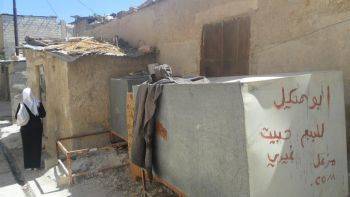 Gaza refugee’s home in Jordan, photo courtesy: Siraj Davis
|
(JERRASH, Jordan) – The Gaza camp in Jordan, near the northwestern historical area of Jerrash where the ruins of the Greco Roman Empire flourished along with other civilizations, is a camp that originated from the 1967 Arab/Israeli War.
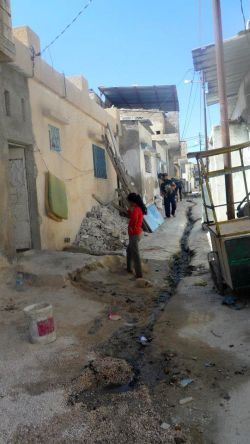 |
During this war, about 12,000 refugees fled from the now blockaded city of Gaza in Palestine to this area. As of recent, it now has a populace of about 30,000 Gazan émigrés.
This hidden area is unknown to the perfunctory eye and one can easily overlook this extant camp because it lies on the outskirts of the city, connected to the rest of the reigning civilization by a single neglected dirt road.
Many tourists were surprised to know such a horrible place existed, when later told how close it is to the historical ruins of Jerrash.
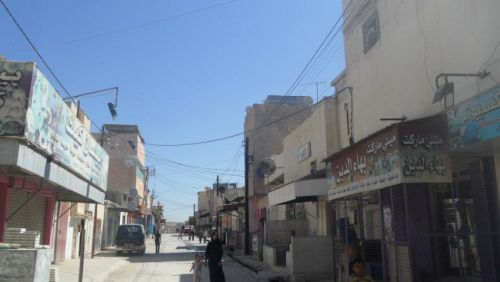 |
Some residents of Jerrash often retort to anyone who asks to visit this place with the suspicious and offensive rising intonation on the last word of the sentence, “why do you want to go there!?”
A couple of tourists wonder if the nearby municipality of Jerrash desires foreigners to remain without knowledge of it because of its horrendous and dilapidated conditions so near to a bustling tourist attraction and well kept city.
The conditions at this camp are described by many to be the worst throughout Jordan. The area is enveloped by an empty desert and saturated throughout its streets with children playing innocently around the sewage and trash.
The streets are cluttered with an accumulation of discarded food, old recyclable materials, and more which must be burned frequently because there is an undependable garbage disposal service.
 |
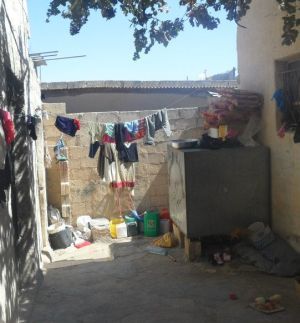 |
Sometimes a child must step over an antediluvian sewage drain in the middle of the streets in order to avoid feces from smearing on one’s shoe while simultaneously kicking a football. It is a social enigma to a witness of such an event, as to how this child cannot seem perturbed from the offensive smell that is clearly sensible to the noses a distance away.
The solution to this conundrum is an expensive one as the residents pay exorbitant fees in comparison to other cities in Jordan to have this sewage intermittently dumped outside of the city. The result of such costs is the water for bathing and drinking is sporadically available every two weeks and is sometimes a coagulation of sewage and normal water as a result of a scarcity of functioning modern pipes.
If the sewage and water does nothing to perturb you, then the living quarters are also squalid with tiny rooms, antiquated with cracks in the concrete walls, and teeming with residents. Sometimes 10 people can be found in 1 room of a windowless metal-roofed apartment.
Those are the lucky ones!
There are known cases of residents accumulating into one dwelling with 25 people. Others live in roofless apartments or outside in tents where they are exposed to the challenges of the extremely cold seasonal weather.
The shanties Gazan refugees live in also coalesce with the appearance of its surroundings. The infrastructure of the Gazan camp is not only lacking in proper sewage, but there is a severe lack of recreational areas like parks for children and a road system to transport supplies and travel effluently.
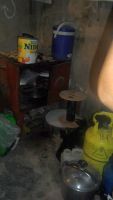
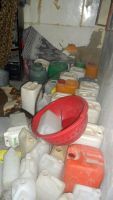
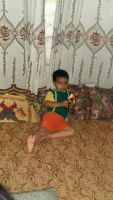
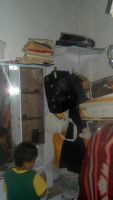
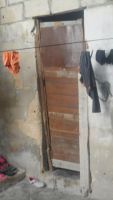
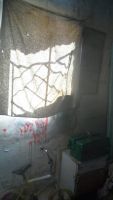
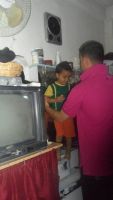
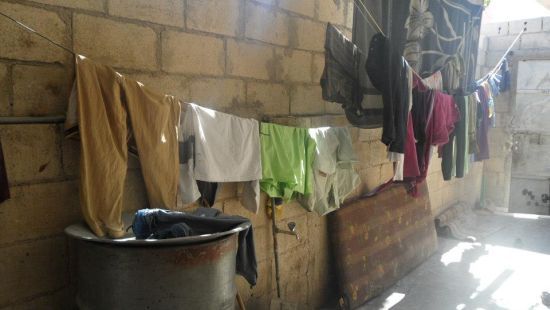 |
If the environment was of no concern, focus on the health conditions of these residents reflect a ghastly image. Volunteers report the presence of many diseases that are easily preventable with access to Western medicine.
There are instances of diabetes, nervous disorders, cancers, high blood pressure, and more going untreated. Others are disfigured without the means to remedy this with surgery and there are paraplegics without wheel chairs.
The above depictions are the stringent means of life often overlooked by the immense annual flow of curious and magnanimous foreign excursionists, desperately wanting to glance eyes upon and be enlightened by the ancient ruins of Jerrash, instead of the impecunious and simple human quintessence found in the Gazan refugees’ lives of today.
There are other serious quandaries as well. The Gazan derived residents have no National ID or travel papers, like breathing and visible ghosts after 5 decades of Jordan being their domicile and giving birth to children inside of Jordan, they and their posterity don’t exist.
 |
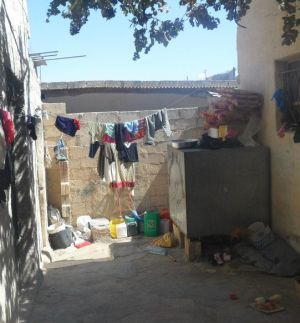 |
Thus they cannot work, receive government benefits, have full access to education, own a car, nor travel freely. The inability to work has spawned unemployment at a peaking 50%. In addition, the school dropout rates are high from a combination of suffocated hope, lack of faith in education’s discernible rewards, and from the more immediate concern for necessary employment to survive.
The life expectancy is also much lower in comparison to the outlying regions in the country. In response, the UNRWA (United Nations Relief Work Agency) has attempted to remedy these consternations via inchoate programs to augment the living standards and proliferate the opportunities of these stateless people.
They provide education at 4 schools that reaches the 10th grade level as well as a food distribution center. Furthermore, some of these nation-less Gazans receive financial assistance from the United Nations at $7 JDs per family member for a period of 3 months.
Although the UN gives them rice, sugar, oil, beans, lentils, and chick peas; there are occasional shortages of food while lentils appears to be the daily meal for dinner. Insufficient aid and services by the UNRWA and other entities are not the only deprivations Gazan refugees complain about though.
The lack of an egalitarian and complete distribution of services and aid to these displaced Gazans in addition to the perception that the UNRWA, other organizations, and surrounding communities are not doing enough; has created fluctuating confidence in the aforementioned relief agencies.
 |
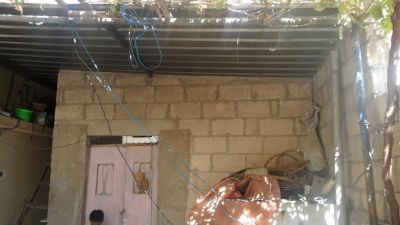 |
Criticism from some claim that the UNRWA sometimes confuses itself as a single panacea rather than a means to aid these unnaturalized Gazans because the former micromanages the camp.
It has been reported that the UNRWA has strict control of the area whereas no nascent business can begin without their permission, thus atrophying entrepreneurship and possibly affecting the economy.
In addition, sometimes the UNRWA’s sluggish bureaucracy has granted late permits of permission to those wishing to seek medical aid, resulting in a reported death of one resident shortly after receiving this permit. However, the UNRWA is not the only organization which escapes criticism by some of these émigrés and others.
Some have reported that other organizations who receive aid to distribute to the residents of the Gaza encampment have pocketed the money instead. In consideration of all of the above, it is not a jolt or bombshell to hear the neo-aphorism by the inhabitants of Gaza refugee camp that no one seems to altruistically care for their humanity, much less their rights– until the latter is purchased first.
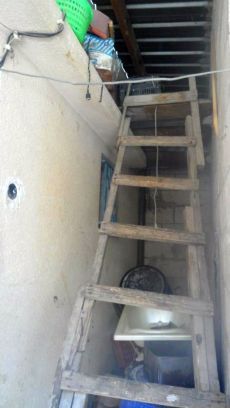 |
Despite the high risk atmosphere of the Gazan abyss, the very limited or missing assistance, and complaints of inadequate or too intrusive aid from some organizations; there appears to be others with much more limited funds making admirable and productive achievements. One group of youths has caught the notice of others around them and inspired onlookers.
This group, whose name translated to English means Youth Before Age, has been journeying to this camp uninterrupted while others refuse to bat an eyelid to the unfortunate circumstances there. They give food not in copious supply such as meat, take the children to an amusement park for a day of gratuitous extravaganza, photograph and corroborate on-the-ground living conditions, report and aid individual cases, give free lessons in English, repair and erect homes, and more.
There are 75 homes that they patrol over but are unable to help 6 of these homes because of a budget deficit. This group is now searching for more sponsors. This group also has an adopt-an-orphan program for 40 kids at $25 JDs a month.
Furthermore, the group has an recruitment program to battle the penury of unemployment. They are a group of cadres that exemplify the saying “be the change,” and their contributions toward humanity echo the sentiments of what many people would like to see amplified more in the world and to undo the obdurate lack of hope in the displaced Gazans.
One of the volunteers, Dr. Essam N. Amiss, travels 1 hour back and forth to the Gazan camp. He has been a volunteer for the group Jordan Volunteers for 4 years and now helps this particular band of humanitarian activists. He is a dentist who believes in the principle that sharing is caring and repeatedly reminded me during my interview with him that the Gazan refugees have never known the degree of happiness we are accustomed to regularly.
When expounding on the conditions of Gaza camp, he described it as a grisly disaster with hapless people devoid of a meaningful existence. He continued that the humidity is scorching high, health and sanitation conditions are dreadful, and repulsive housing and appalling unemployment problems are endemic there.
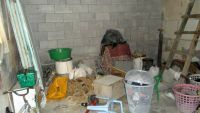
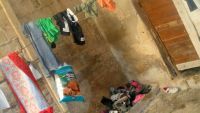
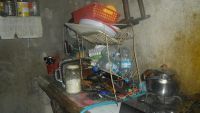
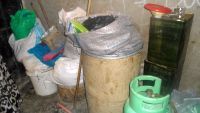
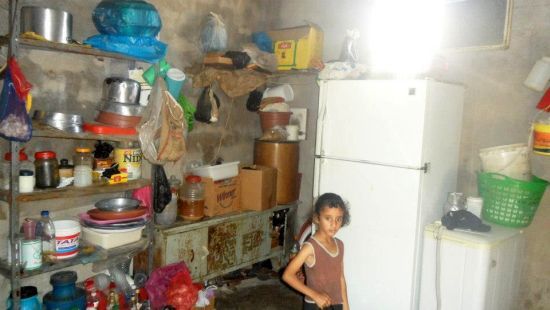 |
When asked why he helps he replied, “I have a good life, I am a dentist. Other people don’t have the conditions I have in my life. So I want to make them happy.” When queried what does he want to say to those who prevaricate and acquiesce that they have neither time nor funds to help, he responded, “It isn’t difficult. Anyone can help. You can help in other ways. Blood donation for cancer patients for example. It only takes 15 minutes.”
Dr. Amiss has an unmalleable passion that demonstrates laudatory applause as he works selflessly to help others without asking for anything in return; it’s called heroism, it’s called having a prudent mind, it’s called having a heart, it’s called character, it’s called altruism.
If one were to think that only those with a good life have the ability and time to help, it is necessary to disabuse that false assumption. An English teacher named Amane Saed Ahmed Ghunaim is a 25 year old English teacher at Deaar Alateui School who helps Youth Before Age. Despite having a full time schedule teaching children, she has been participating in the functions of this group for a month. Her inspiration, she stated,
I like to help people because my religion motivates me. The existence of these people in Gaza camp are so poor without a yearly income. I feel so happy to help these people… When I see the children happy, I am happy.
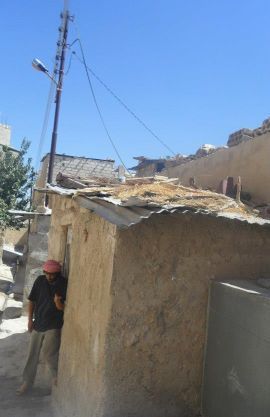 |
Another heroine, Dua Abdel Rahman Qandeel works hard while rushing back and forth as if racing through a labyrinth, making sure the program is on track. She is the alpha female of this group and a softmore studying Business Accounting.
When inquired about what sparked her interest for helping people, she identified the catalyst for her inspiration was her mother. Since the age of 16, her mother always hauled her out to aid underprivileged people and also never declined the opportunity to succor others.
Dua reminisced about the times during Ramadan where she handed out food to the indigent, feeling the tiny spark within her which seemingly confirmed she just made a difference. As she recollected about her youth, “Everyone has a talent and my talent is to help people.” In the beginning of her humanitarian quest, she wanted to direct her endeavors toward helping the Syrian refugees, but certain agencies within Jordan did not permit her. Therefore, she searched for a calling until she discovered the tiny Gazan community and clung to it after exposure to the extraneous hardships there.
When I asked her about the conditions of Hashemi Shemali where the majority of Iraqi refugees live, in comparison to the Gaza Camp, she replied tersely “it’s a villa! [Hashemi Shemali]” Many can not fathom how no one seems cognizant about the Gazan refugee camp in Jordan. When asked why she believes so few have knowledge of this agonizing inferno, she responded that it is the consequence of the generation of youth today who have become opulently selfish.
In deference from my respect and admiration for Dua and her outstanding colleagues, I refrained from volunteering my opinion to her of the disregarded painful status of the Gazan refugees.
My opinion is much of the anguish, loss, and stories of Palestinians’ victimization at behest of Israel’s and the US’ jingoistic policies have been persistently marginalized in the media.The sad irony is that the marginalization of the Palestinians’ plight like with these Gazan refugees, is exactly what Al Qaeda and Osama Bin Ladin averred was the impetus behind the 9-11 attacks in the US, sparking the conflicts of today which have created new refugees.
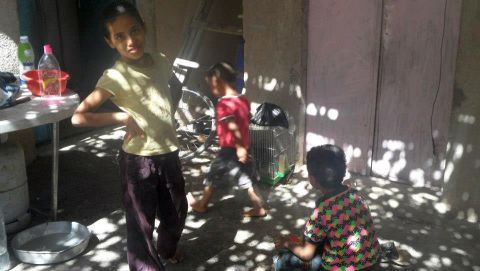 |
If we were to pay attention now, we can see glaring examples of such biased treatment. Recent events in Afghanistan, Iraq, and now Syria has brought a large influx of refugees to neighboring countries. Many websites, news articles and broadcasts, documentaries, grassroots organizations, and more have sprouted up stretching its branches wide to let the world see of the darkness the fresh hapless and innocent refugees of the aforementioned countries endure.
Reactions of remorse for these refugees’ situations and forthcoming assistance has become the status quo. On the contrary, the displaced refugees of the Gazan camp have been living under more difficult tribulations with no land to return to nor an option of resettlement, for well over a period of 50 years with a more diminutive amount of relief. Worse, they have not received a quarter of the media attention as the other nascent refugees.
It is a salient point to make that politics sometimes has a large influence upon creating refugees, the attention and aid granted to soften the hardships attached with such a life, and whether one is forgotten like those of the Gaza camp in Jordan.
I wonder if Dua held the same opinion as to the political determinants in the marginalization of the Gazan refugee camp for over 5 decades. Perhaps her politeness and concern not to offend this American made her hesitant and reserved.
I am sure after this article, I will discover the veracity of her previous explanation later. Albeit I feel that I have a political lesson for Dua in regards to politics’ influence on the Gazan camp, the typical western hubris within me was extremely humbled by her sagacious advice for all of humanity. Advice we should all espouse as a concrete human deterrent and solution to the challenges of the past and today, instead of an undependable and partial political one which may cause future crises via marginalization:
“When you see people who don’t have food, clothes, poor education, poor health, and no foundation; you have to take care of them. There is ignorance, girls suffer from inequality, unemployment, and the deprivation of the elderly who are ill. Despite all of these problems, you will find them [Gazan refugees] magnificent and kind. I hope to carry their voice to the people so others will visit them and see how terribly they are living.”



